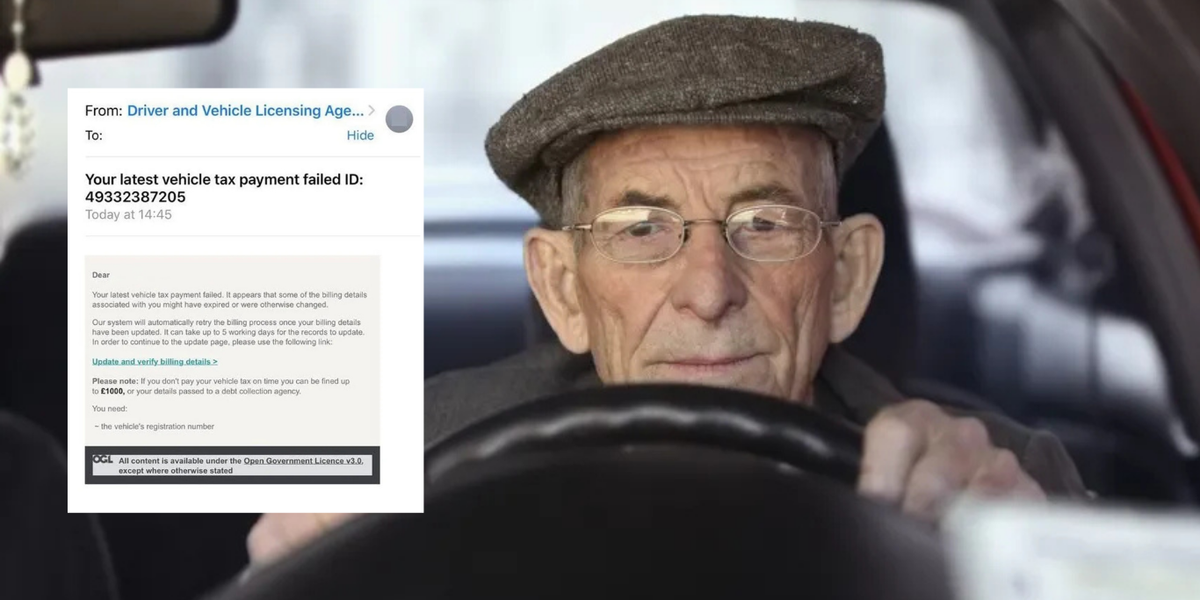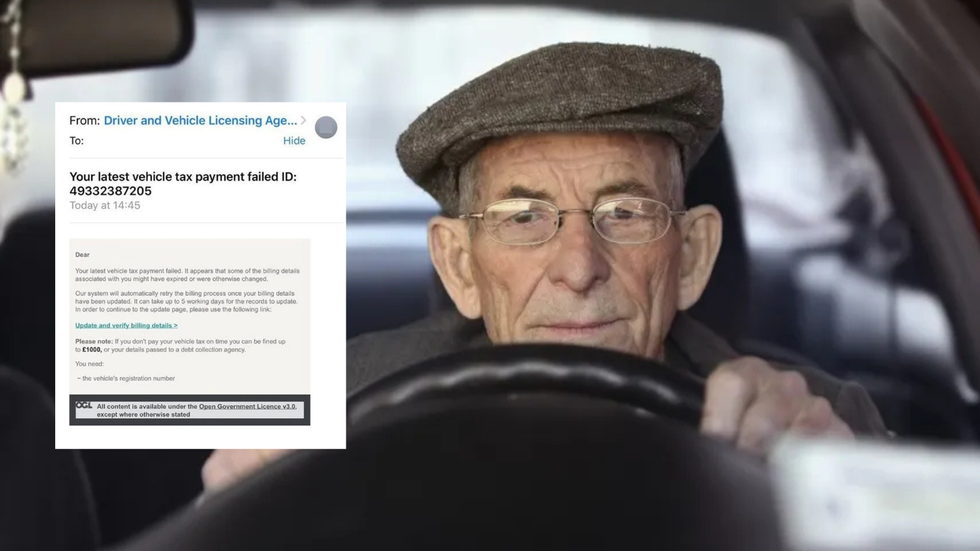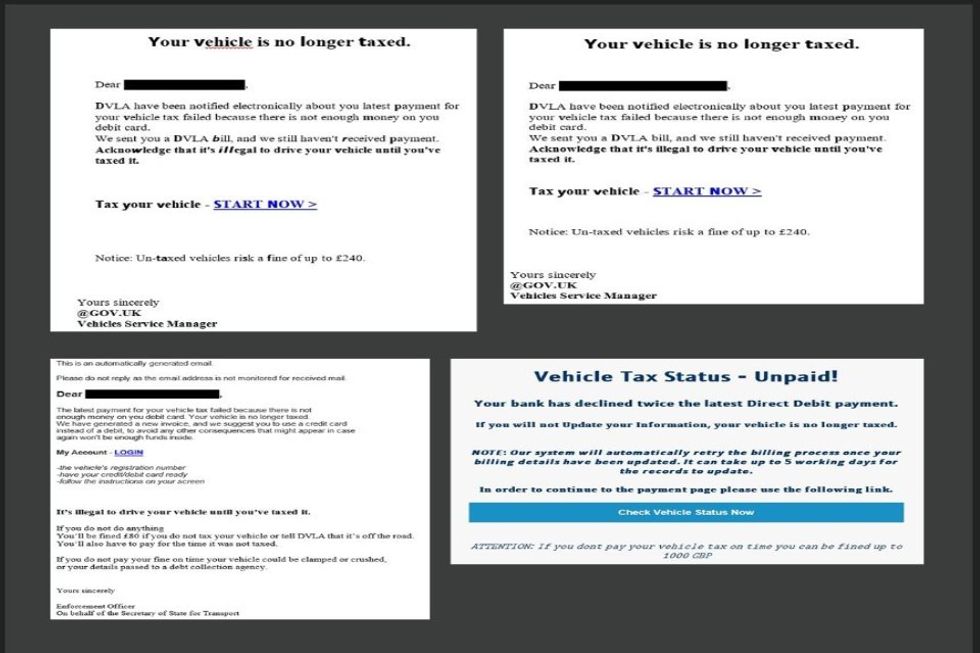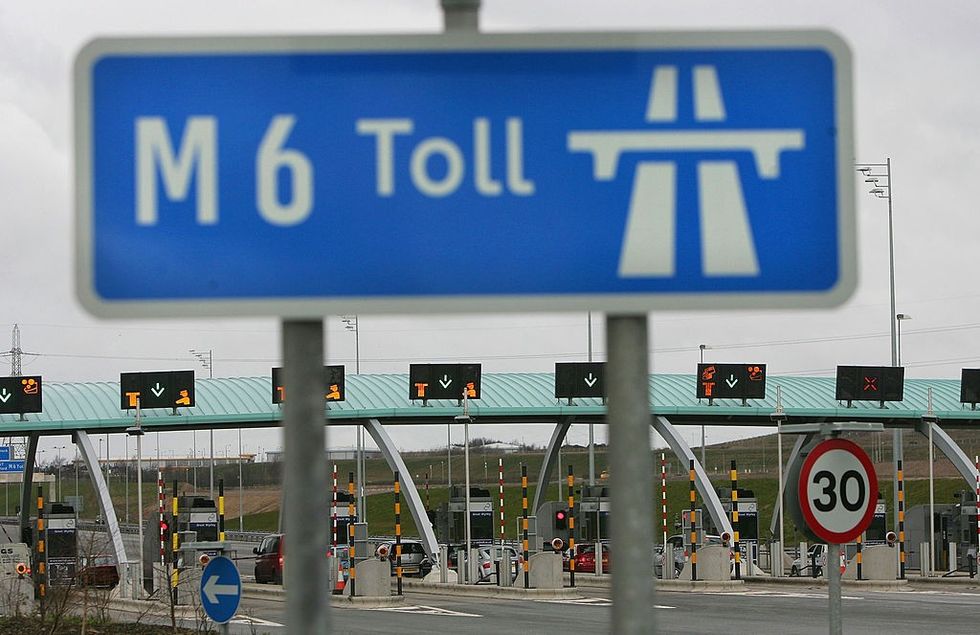



Motorists have been warned of growing threats from sophisticated driving scams, with reports to the DVLA reaching nearly 20,000 last year alone.
Fraudsters have been caught deploying increasingly cunning tactics to target drivers, with some victims losing thousands of pounds.
Now, experts have urged drivers to avoid getting caught out by key methods used to deceive unsuspecting motorists across the country.
The types of scams range from tampered QR codes on parking meters to highly convincing fake DVLA communications.

The fake scams have impacted 20,000 drivers last year
DVLA/GETTY
The first major threat comes from criminals placing fraudulent QR code stickers on parking meters. These codes direct motorists to fake payment sites designed to steal financial details.
Fake DVLA messages represent another growing concern, with scammers sending texts or emails claiming licences need updating or car tax payments have failed. These messages attempt to harvest sensitive personal information from worried drivers
Bogus Parking Charge Notices have also been on the rise, arriving by post and demanding immediate payment to avoid escalating fines. These fake notices often lack crucial details, such as specific dates, times, and locations of alleged violations.
Online marketplaces have become hunting grounds for used car fraudsters, who post vehicles at suspiciously low prices and demand upfront bank transfers. In 2023, Facebook car scams alone cost victims nearly £500,000.
 Previous examples of DVLA scam sites have urged drivers to pay car taxesDVLA
Previous examples of DVLA scam sites have urged drivers to pay car taxesDVLA
Finally, drivers have been receiving fraudulent toll and congestion charge messages containing malicious payment links.
John Wilmot, CEO of car lease comparison website LeaseLoco, said: "A lot of these scams will urge you to quickly pay a fee to avoid facing bigger fines. When we see something like this, we often rush to get the payment done rather than stopping and checking the legitimacy of the message or letter.
"By taking a moment to verify the legitimacy of these alerts, you could save yourself from losing out on potentially thousands of pounds."
The experts stressed that fraudsters deliberately exploit drivers' fears of penalties and their uncertainty about digital payment systems to pressure victims into hasty decisions.
To protect against parking meter QR code fraud, drivers should use official parking apps exclusively, such as RingGo and PayByPhone. Drivers should also be aware that most councils don't use QR codes for payment, preferring machines or established apps.
Meanwhile, the DVLA explained that it will never request money or personal information through email or text messages. Drivers should only access DVLA services through the official gov.uk website and avoid clicking links in suspicious messages.
When receiving PCN notices, motorists can verify authenticity by contacting their local council's parking department directly.
For used car purchases, buyers must insist on viewing vehicles in person before making any payment. Vehicle histories can be checked through the government website.

Scammers have falsely sent drivers penalties pretending to be from the M6 Toll
GETTYRegarding fake toll charges, drivers should note that legitimate notifications will only come from GOV.UK or verified operators, including TfL, M6 Toll, and Dart Charge for the Dartford Crossing.
Younger drivers aged between 25 and 34 are particularly vulnerable to vehicle-related scams, including used car fraud and bogus insurance deals.
Meanwhile, older motorists face increasing targeting through fake parking fines, with fraudsters exploiting their uncertainty around online payment systems.
Wilmot noted that driving-related scams are "really common" and "work well for fraudsters" due to their ability to create panic. He urged motorists to remember that legitimate organisations like the DVLA will never request money or personal information via text message, emphasising the importance of pausing to verify any unexpected demands for payment.
